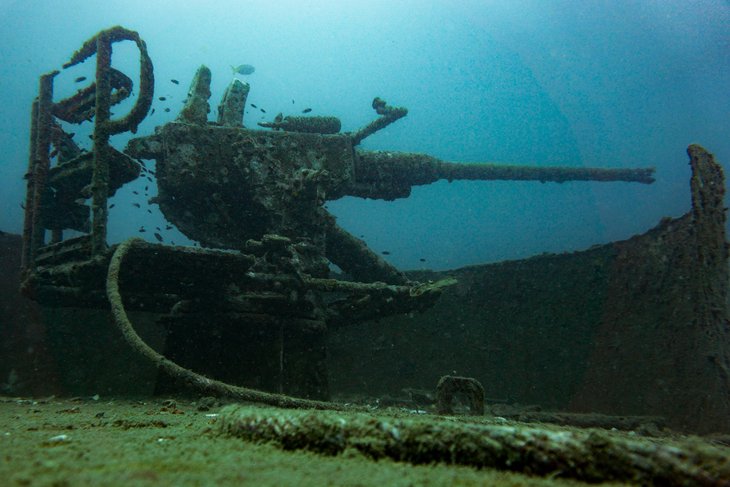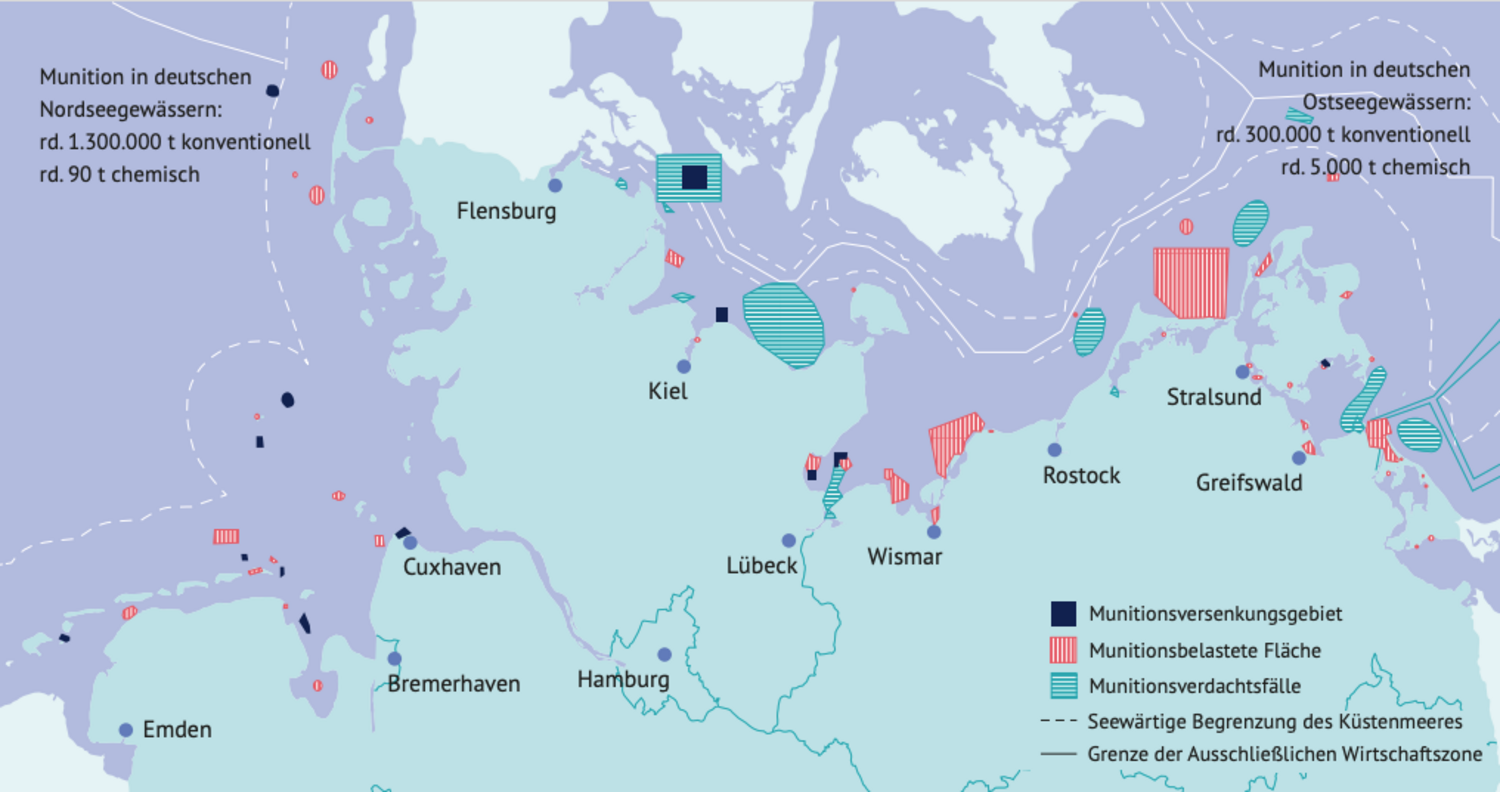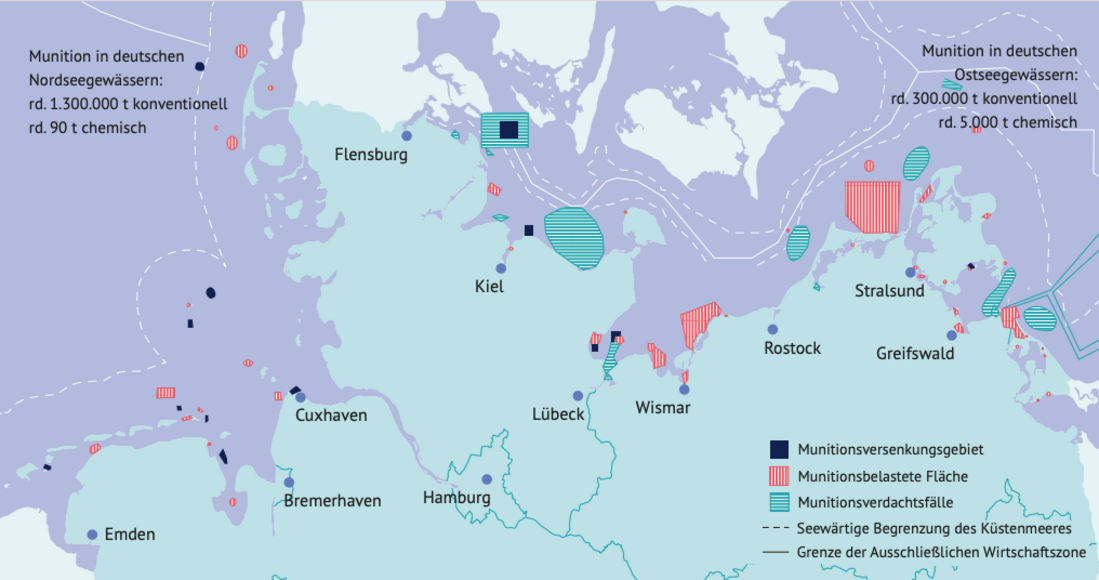
Out of sight, out of mind: since the end of the Second World War, large quantities of munitions and chemical warfare agents have been dumped in the oceans. For decades, former belligerents such as the USA, Japan, Great Britain and Australia in particular have disposed of old munitions in the ocean - many of them in specially designated dumping areas.
Up to 1.6 million tonnes of World War II munitions and around 5090 tonnes of chemical warfare agents are believed to lie on the seabed in German marine waters. In addition, there is an unknown number of shells that were dispersed during combat operations, exercises or accidents in the North Sea and the Baltic Sea.
Danger from rotting bombs
As current research clearly shows, munitions pose a threat to the marine environment and a sustainability risk for the management of the oceans. Many typical explosive compounds are carcinogenic. As the munitions are gradually rusting through and considerable quantities of explosives are already lying exposed on the seabed in some areas, their entry into the environment is already detectable.
There is also a danger to life in many places. Like unexploded ordnance on land, explosive ordnance dumped in the sea can also explode if people or technical equipment come into contact with it while working on the seabed. This is relevant for fishing, for example, but also for offshore work or the new liquefied natural gas terminals.
The danger is sometimes very small: beach visitors to the Baltic Sea like to search for amber and pick up solid, yellow-brownish cubes that appear similar to amber. However, it may be phosphorus from old munitions - a substance that ignites when exposed to body heat. There have already been several accidents involving serious hand or body injuries. Caution is therefore advised.

Focus topic: Munitions in the ocean
Explosive ordnance in the sea threatens the marine environment and jeopardises the sustainable use and management of the oceans. Research into the extent of this threat and the future handling of the legacy of munitions has been intensifying in recent years. This focus summarises the scientific status and perspectives on the topic of munitions in the sea.
Can old munitions be salvaged?
While in Germany the explosive ordnance disposal services of the federal states recover dumped old munitions whenever necessary and required, other countries prefer to detonate munitions found on the seabed in a controlled manner. However, such detonations have severe impacts on the marine environment, particularly on noise-sensitive creatures such as whales.








